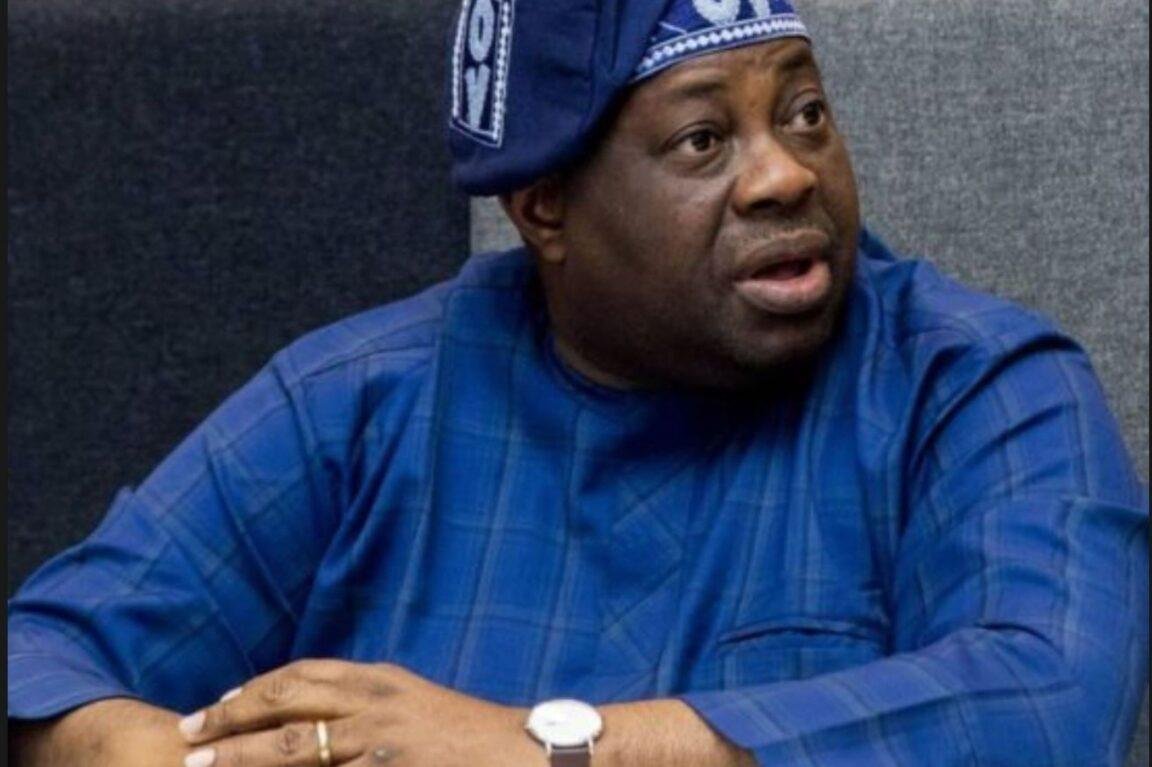In an unexpected twist that has set Nigerian social media ablaze, renowned media personality and Ovation Magazine chairman Dele Momodu has captured hearts with a spontaneous dance video. Posted on October 6, 2024, at 8:15 PM WAT, the clip features Momodu grooving to a new composition by Juju music legend Sir Shina Peters, dedicated to Osun State Governor Ademola Adeleke. This nostalgic moment has not only rekindled memories of Nigeria’s golden era of Juju music but also showcased a rarely seen side of the media mogul.
As the sun set over Lagos, casting a warm glow on the city’s bustling streets, Dele Momodu’s Instagram notification sent ripples through Nigeria’s digital sphere. The video, shot in what appears to be Momodu’s home office, shows the usually serious media personality letting loose to the infectious rhythms of Shina Peters’ latest track.
I couldn’t believe my eyes,” exclaimed social media analyst Adebola Adeyemi, whom I contacted for insights. “Dele Momodu dancing? It’s like seeing your strict high school principal at a nightclub. But it’s absolutely delightful!”
In his Instagram caption, Momodu took followers on a nostalgic journey back to the heyday of Juju music. We grew up in the SHINAMANIA era,” he wrote, referencing the cultural phenomenon sparked by Shina Peters’ groundbreaking 1989 album “ACE.
To understand the significance of this musical throwback, I spoke with music historian Dr. Folake Adeleke at the University of Lagos. The release of ‘ACE’ was a watershed moment in Nigerian music history,” Dr. Adeleke explained during our phone interview. “It bridged traditional Juju with more contemporary sounds, creating a crossover appeal that was unprecedented at the time.”
Momodu’s reference to “SHINAMANIA” isn’t just personal nostalgia; it’s a reminder of a cultural movement that swept across Nigeria and beyond. That album spread across nations like wildfire,” Momodu noted in his post, highlighting the global impact of Peters’ music.
Interestingly, the song that prompted Momodu’s impromptu dance session wasn’t a classic track, but a new composition by Sir Shina Peters. The piece was specially created for Governor Ademola Adeleke of Osun State, who happens to be a close friend of Momodu and an uncle to Afrobeats superstar Davido.
This connection between music, media, and politics offers a unique glimpse into the intertwined nature of Nigerian public life. Political analyst Chidi Okafor shared his thoughts on this intersection. In Nigeria, music has always been a powerful tool for political expression and connection,” Okafor noted during our meeting at a local café. Seeing figures like Momodu and Adeleke celebrate their friendship through music speaks to the enduring role of art in our political landscape.”
In his post, Momodu also reminisced about nights spent at the iconic Stadium Hotel in Surulere, Lagos. “His recent special composition… rekindled our love for this amazing artist who turned us all into his devotees at the Stadium Hotel Surulere, Lagos, on Friday nights, in those beautiful, good old days,” he wrote.
To capture the essence of this era, I visited the site of the former Stadium Hotel, now a bustling commercial complex. Long-time area resident Alhaji Mustapha Bello shared his memories of those nights. “Ah, Stadium Hotel on Fridays was something else,” Bello reminisced, his eyes twinkling. The energy, the music, the fashion – it was the place to be. Seeing Dele Momodu’s video brings it all back.”
As Momodu’s dance video circulated online, reactions poured in from fans and celebrities alike. Many expressed surprise at seeing this side of the media mogul, while others celebrated his embrace of nostalgia and joy.
Instagram user @dr.akin_oyedapo commented, “

Others, like @ajidagba2140, simply expressed admiration: “Daddy I love your dancing 

Momodu’s viral moment raises interesting questions about the role of social media in shaping public perceptions of well-known figures. To explore this further, I consulted digital media expert Dr. Ngozi Okonkwo at the Pan-Atlantic University in Lagos.
“What we’re seeing with Dele Momodu’s video is the power of social media to humanize public figures,” Dr. Okonkwo explained. A single, unguarded moment can shift perceptions and create connections with audiences in ways that were impossible before the digital age.”
This sentiment is echoed by social media strategist Yewande Adesina, whom I met at a tech hub in Yaba. “For someone like Dele Momodu, who’s known for his serious journalistic work, showing this playful side can actually enhance his brand,” Adesina noted. “It makes him more relatable, especially to younger audiences who might not be as familiar with his earlier work.”
As night fell over Lagos, with the city’s lights twinkling against the skyline, Dele Momodu’s dance video continued to circulate, sparking conversations about music, nostalgia, and the evolving nature of Nigerian pop culture.
The unexpected viral moment serves as a reminder of the enduring power of Juju music and its ability to bridge generations. It also highlights the changing landscape of media and celebrity in Nigeria, where a single social media post can reignite interest in cultural touchstones of the past.
Whether this marks the beginning of a “Shinamania” revival or simply stands as a joyful moment in the digital age, one thing is clear: the rhythms that moved a nation decades ago still have the power to get even the most serious among us dancing.




